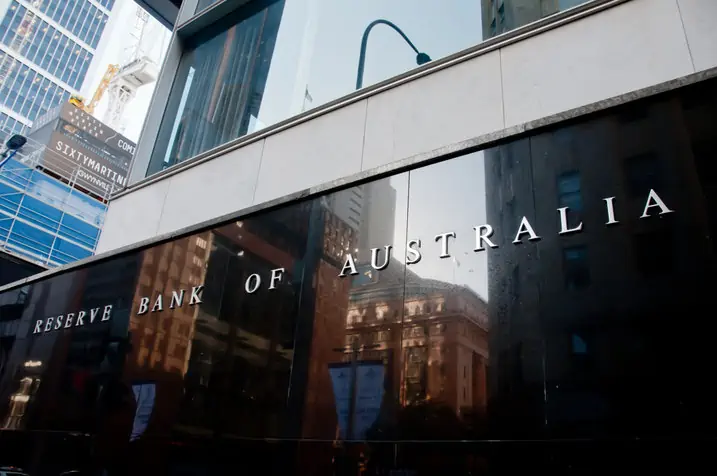In this article:

The Reserve Bank of Australia (RBA) announced an increase to the official cash rate, which now sits at 0.35%. Obviously, this will impact many Australians, particularly those with a variable rate home loan, as the increased cash rate has already led to the four major banks increasing their variable rate home loans by 0.25%.
Despite the fact that this is the first-rate rise we’ve seen since 2010, there are still ways to save on your mortgage. So here is a brief explanation of what it all means and how it may impact you.
What does increasing the cash rate do?
The Cash Rate is the overnight lending rate between banks and is effectively the base interest rate upon which all other rates (including variable-rate mortgages) are based.
The RBA changes the cash rate for a number of reasons – to spur borrowing and spending among businesses and banks, to keep inflation in check, or to make sure the Australian dollar doesn’t get too strong or weak overall. What does this mean for you personally when rates go up or down?
When rates go up, it is good news for savers but bad news for borrowers. This can be a great thing if you already have money saved up and are looking to invest or buy something expensive. On the other hand, when rates go down, it is very beneficial, especially during times of financial hardship – borrowing becomes cheaper so more people can afford it.
Why raise rates now?
The main reason behind all of this is that the RBA is concerned with inflation, that is the “increase in the level of prices of the goods and services that households buy. It is measured as the rate of change of those prices”, said the RBA.
Mark Bouris and Stephen Koukoulas recently sat down to discuss what inflation means and why it’s been such a central talking point over recent weeks. You can access their conversation here.
As to why raise rates right now: the RBA is trying to temper the increased inflation that we have all experienced in recent months. Increased interest rates reduce the amount of disposable income that everyday Australians have for discretionary spending on everyday household items (like groceries). This happens because the increase in interest rates leads to an increase in mortgage repayments due to the interest rate rise.
An increase in interest rates also encourages saving rather than spending, as savings deposit accounts with banks start to accrue more interest if your bank decides to pass on the increase in the cash rate to your savings account. The essential idea is that the RBA is trying to reduce the amount of spending to take pressure off house prices and reduce inflation.
What are the most obvious consequences of a rate rise to mortgage owners?
There are two obvious impacts of the rate rise to focus on.
Firstly, those with a variable rate mortgage will see an increase in their monthly repayments.
Secondly, the RBA’s objective in increasing rates is to put downward pressure on house prices. Here’s why:
Increased rates impact any Australian trying to apply for a home loan as it reduces the borrowing capacity for any given income.
Without any growth in wages, this will reduce the ability for property prices to continue to increase as the competition for loans to buy property decreases. The RBA is essentially thinking that through steady rate increases, pressure on property prices will likely lead to a decrease in the average cost of a home. It will actually put downward pressure on property prices.
The RBA is likely to take a measured approach to this by slowly increasing interest rates rather than implementing a sharp increase, as some commentators have suggested. The RBA would not want to run the risk of a sharp decline in property prices.
Have any major banks started passing on the rate increase?
Australia’s largest banks have already passed on the 0.25% increase to all variable rate customers of 0.25%, consistent with the RBA’s cash rate increase: this includes NAB, CBA, ANZ, Westpac and Macquarie Bank.
Those with a variable rate loan obviously will be paying more each month, but those with savings accounts may experience an increase in the interest returned to their savings accounts. Initially only NAB and Westpac announced an increase of 0.25% in returns for certain term deposit accounts, however ANZ matched Westpac and NAB by increasing savings rates on a suite of deposit products by the same 0.25% rise as the cash rate. Commonwealth Bank then went one better and decided to lift their interest rate on 18-month term deposits by 1.95 percentage points. If you have a savings account with your bank, it’s worth enquiring as to whether they’ve passed on the rate rise to your savings account.
Should we expect more rate rises?
Almost certainly, however, before you consider trying to jump into a fixed-rate loan, there is already a very significant premium built into fixed rates now, so they may not represent the best value for money. Lenders will have considered the current market and the likelihood of continued rate increases and calculated this into their fixed rate home loan products.
If you’re currently on a variable rate home loan and you’re considering refinancing to a fixed-rate loan, I’m happy to discuss your circumstances with you to ensure a fixed home loan is right for you. Higher fixed rate products may actually reduce your borrowing capacity and possible impact your ability to achieve your financial outcomes.
The takeaway?
As Mark Bouris said just last week, the incredibly low rates we’ve seen over recent years are the result of the RBA wanting to ensure our economy remained stable during the pandemic era. The recent rise reflects a ‘return to normal, so reach out to us today if you have any questions or concerns about your current circumstances. We’re here to support you.



